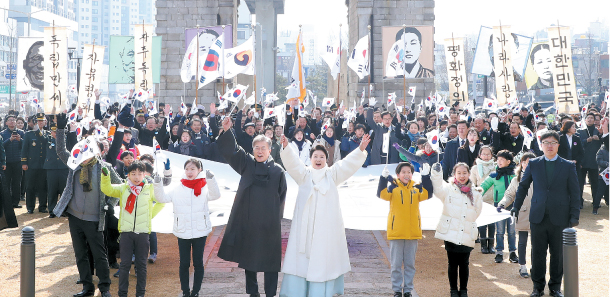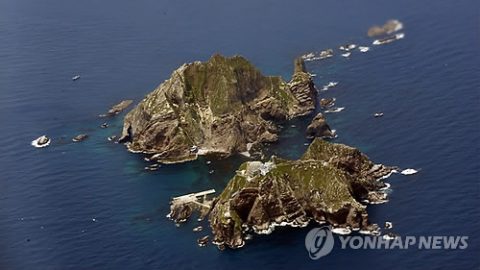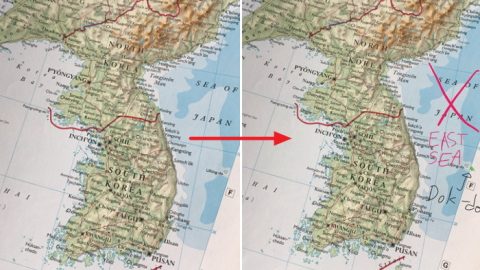President Moon Jae-in declared that next year – the 100th anniversary of the birth of Korea’s independence movement – can be a starting point for the establishment of a permanent peace on the peninsula.
In his first address on March First Independence Movement Day, which marks the nation’s 1919 uprising against Japan’s colonial rule (1910-45), Moon said the issue of Japanese wartime sexual slavery, which he called a “crime against humanity,” has not been properly resolved.
Recollecting Korea’s achieving of independence through its martyrs and activists, Moon said Thursday at Seodaemun Prison History Hall in western Seoul, “In 1940, the Korean Provisional Government founded the Korean Liberation Army, the first regular military forces of the Republic of Korea.”
Moon was affirming the notion that an independent Korea was founded when a provisional government was established in 1919 in Shanghai, which has been contested by conservatives, who trace modern Korea’s birth to 1948, when Syngman Rhee was elected the first president of the Republic of Korea three years after liberation.
Nearly 100,000 Koreans were incarcerated in Seodaemun Prison by the time the country was liberated from Japanese colonial rule on Aug. 15, 1945.
Seodaemun Prison is personally significant to Moon, who declared a presidential bid there in 2012. Moon himself was held in Seodaemun Prison for his role in the pro-democracy movement during his college days.
The ceremony was attended by leaders of the five ruling and opposition parties.
Moon pledged to “turn the March First Independence Movement and the 100th anniversary of the founding of the Republic of Korea into a new starting line for the establishment of a permanent peace regime and prosperity based on peace.
“We are capable of accomplishing peace for ourselves,” Moon said, calling for “a peace community and an economic community on the Korean Peninsula for the years to come.”
However, Moon made no direct mention of North Korea or denuclearization, nor the recent exchanges between the two Koreas during the PyeongChang Winter Olympics.
“We need to make sure that the division of the Korean Peninsula will no longer be an obstacle to peace and prosperity,” said Moon. “I propose to the people today that we achieve this goal together.”
Moon has previously expressed his desire to establish a permanent peace regime on the Korean Peninsula through improving inter-Korean relations and resolving the North Korean nuclear issue, and drawing a new economic map enabling joint prosperity with the North.
He said that a Korean Provisional Government memorial is scheduled to be opened in 2020. The government will also restore the headquarters of the Korean Liberation Army in Chongqing, China, to coincide with the 100th anniversary of the provisional government.
Moon also said the candlelight rallies that helped bring down the Park Geun-hye government had the spirit of the March 1 movement and followed Korea’s “history of popular sovereignty.”
He called for a country completely free from divisions and discrimination resulting from wealth, gender, education and region to “build a cultural powerhouse that leads world peace.”
The most frequently used word in his address was “gukmin (people),” which he used 20 times, followed by “peace” and “history” each 11 times. Though he made no mention of North Korea, Moon referred to the “Korean Peninsula” four times.
Moon also called out Japan for its territorial claims and declared that the Dokdo islets in the East Sea are “our indigenous territory.” Japan also claims Dokdo, which it calls Takeshima.
Dokdo, said Moon, is “our land that was appropriated first in the process of Japan’s occupation of the Korean Peninsula.” He said Tokyo denying this fact “is no different from rejecting self-reflection of the imperialistic invasion.”
Moon also raised the issue of the Imperial Japanese Army’s forced recruitment of young women and girls into sexual slavery before and during World War II and urged Japan to “squarely face the truth of history and justice with the universal conscience of humanity.”
“To resolve the comfort women issue, the Japanese Government, the perpetrator, should not say the matter is closed,” said Moon. “The issue of a crime against humanity committed in time of war cannot be closed with just a word. A genuine resolution of unfortunate history is to remember it and learn a lesson from it.” These were Moon’s strongest words on the so-called comfort women issue, which has continued to trouble bilateral ties.
The Korean and Japanese foreign ministries during the Park Geun-hye administration struck a deal on Dec. 28, 2015, attempting to resolve the comfort women issue, which included an apology by the Japanese government and a 1 billion yen ($9.37 million) fund for the victims.
The controversial “final and irreversible” agreement was immediately rejected by some victims and civic organizations. The Moon administration has called the deal “deeply flawed” but said in January it does not plan to scrap or renegotiate it. But it underscored it was not a true resolution to the issue.
Moon added in the speech that he hopes Japan will be able to “genuinely reconcile with its neighbors on which it inflicted suffering” and “walk the path of peaceful coexistence and prosperity together.”
“I do not demand any special treatment from Japan,” said Moon, urging Korea’s geographically closest neighboring country “to move forward toward the future together based on sincere self-reflection and reconciliation.”
The Japanese in turn lodged a complaint with the Korean government on Thursday over Moon’s statement that the comfort women issue was not settled. Chief Cabinet Secretary Yoshihide Suga expressed “extreme regret” about the speech at a press briefing.
Foreign Minister Kang Kyung-wha said that previous efforts to resolve the comfort women issue “lacked a victim-centered approach” at the United Nations Human Rights Council in Geneva Monday, which was protested by Japan.
In turn, Manabu Horii, Japan’s parliamentary vice minister for foreign affairs, speaking at session of the council Tuesday, rejected that the comfort women victims were “forcefully taken away” by military and government authorities, saying it “could not be confirmed in any of the documents” in a study in the early 1990s and calling it a “fabricated story.”
Horii further rejected Korea’s use of the expression “sex slaves.”
This comes despite Chief Cabinet Secretary Yohei Kono in 1993 issuing a landmark apology for the suffering endured by the comfort women victims, which acknowledged that the “Japanese military was, directly or indirectly, involved in the establishment and management of the comfort stations and the transfer of comfort women.”
Kono said that the mobilization of the women was “conducted generally against their will, through coaxing, coercion.”
Origin @ http://koreajoongangdaily.joins.com/news/article/article.aspx?aid=3045118



